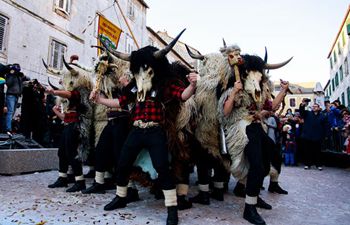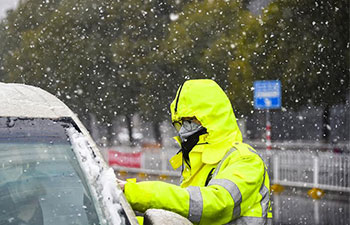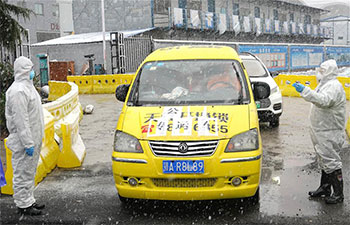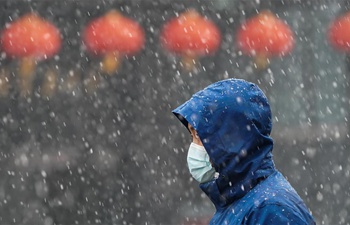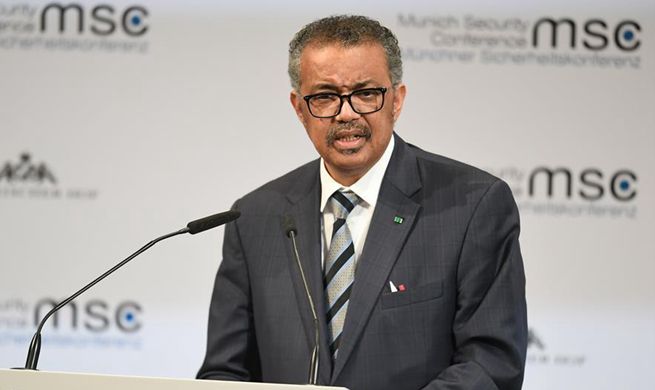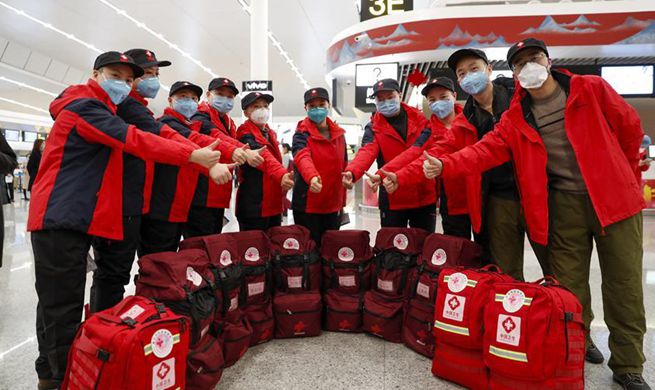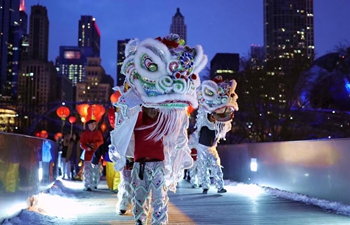TORONTO, Feb. 15 (Xinhua) -- Canadian Indigenous Services Minister Marc Miller on Saturday met with representatives of the Mohawk First Nation in eastern Ontario on the 10th day of a blockade that has caused the shutdown of all rail lines across Canada.
Canadian cargo and passenger rail operators announced the suspension of all railway service on Thursday due to the blockade.
The meeting began at the Wyman Road CN Rail station about 200 kilometers east of Toronto, where a group of the Mohawk First Nation protesters have been camped to support the Wet'suwet'en First Nation in British Columbia province, who oppose the development of a liquefied natural gas project that crosses their land.
The Wet'suwet'en First Nation protesters had been blocking road access to a construction site for the Coastal GasLink pipeline, a key part of a multibillion liquefied natural gas export project in the province.
Miller acknowledged the difficulties that the blockades have caused for travellers and businesses, but stressed that the government's approach was to negotiate, rather than have police dismantle them.
"All of Canada is hurting, the economy is slowing down," said Miller. "Everyone knows the reports about supply shortages, but we can't move forward without dialogue and that's we're going to do today."
A growing number of business leaders and industry groups have called for government or police intervention in the shutdowns.
On Thursday Canadian Prime Minister Justin Trudeau rejected opposition Conservative Party Leader Andrew Scheer's call to order police intervention.
"We are a country that recognizes the right to protest, but we are also a country of the rule of law and we will ensure everything is done to resolve this through dialogue and constructive outcomes," said Trudeau.
The protesters in Ontario have vowed to maintain their blockade of the rail line that passes through their territory until Royal Canadian Mounted Police leave the traditional territory of the Wet'suwet'en in northern British Columbia.
